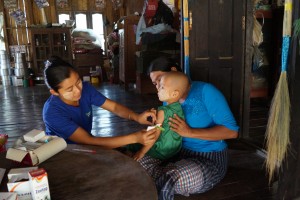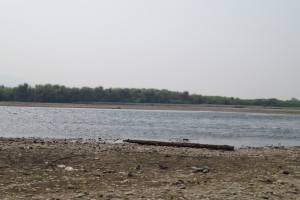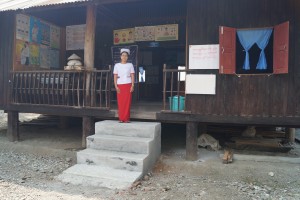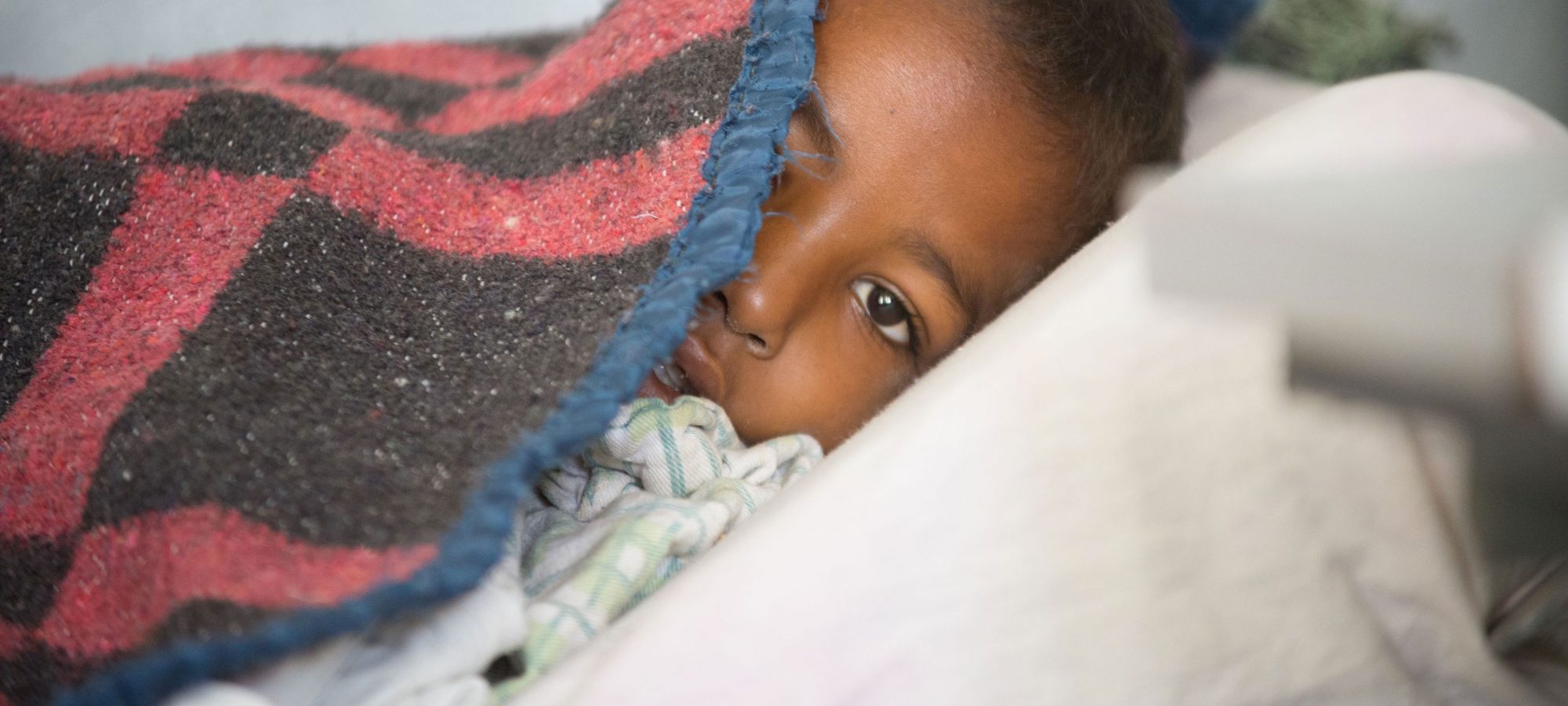
Ma May Theint Oo, mother of a four-year old boy called My Myo Thit Naing, has been working as a malaria volunteer in Sin village – which means elephant in Burmese – for six years now. At the weekends she attends Kalay University to finish her degree in history before she turns 25 next year.
To mark World Health Worker Week, this article takes a look at the lifesaving role that health workers such as Ma play in their communities.
 Ma’s village is located 24 miles from Kalay, in western Myanmar’s Sagaing region. To reach the nearest health centre, members of her community must travel seven miles, crossing a river by boat and travelling the rest of the way in often extremely high temperatures. In remote rural villages where road conditions are extremely bad, this lack of access to vital health services can prove fatal for children under five, as receiving care in the first 24 hours after onset of symptoms is crucial. Even if they survive, the recovery may be significantly longer, leading to more time for the child out of school and the parent off from work. Malaria Consortium has been piloting an approach called iCCM, or integrated community case management. This approach combines diagnosis and treatment of three common childhood illnesses malaria, diarrhoea, pneumonia, while adding diagnosis for malnutrition, and brings health care to the villagers’ doorsteps.
Ma’s village is located 24 miles from Kalay, in western Myanmar’s Sagaing region. To reach the nearest health centre, members of her community must travel seven miles, crossing a river by boat and travelling the rest of the way in often extremely high temperatures. In remote rural villages where road conditions are extremely bad, this lack of access to vital health services can prove fatal for children under five, as receiving care in the first 24 hours after onset of symptoms is crucial. Even if they survive, the recovery may be significantly longer, leading to more time for the child out of school and the parent off from work. Malaria Consortium has been piloting an approach called iCCM, or integrated community case management. This approach combines diagnosis and treatment of three common childhood illnesses malaria, diarrhoea, pneumonia, while adding diagnosis for malnutrition, and brings health care to the villagers’ doorsteps.
Malaria volunteers such as Ma can bring prevention, diagnosis and treatments services into the heart of remote communities such as Sin, and thereby act as a link between their village and the official health system.
The network of malaria volunteers in remote rural communities was established by the Ministry of health and Sports to help to prevent, track, diagnose and treat malaria cases. By building on this existing network and adding new iCCM responsibilities to the volunteer’s work, Ma can now treat more illnesses besides malaria, which is becoming less prevalent, and thereby remain useful to her community.

Providing iCCM training for the volunteers and their supervisors – health assistants and midwives – is crucial for the success of the project. The training for the volunteers focuses on how to diagnose malaria, diarrhoea, pneumonia and malnutrition, how to administer treatments, and in severe cases, how to refer patients to health centres for acute care.
“I learnt how to treat common illnesses such as diarrhoea and fever and I can now give the right treatment. I also know how to accurately count the child’s breathing rate and to organise a follow-up visit. If the illness is severe, I can refer to the hospital,” Ma explains.
Midwife Daw Yi Yi Aung from the nearest rural health centre supervises Ma and helps her to correct any mistakes. “I truly believe Ma can be successful in her work. One of the mothers told me that she’s very satisfied because her child can get immediate treatment and she doesn’t need to cross the river anymore.”
The supervision is of great help to Ma. “At first I didn’t understand the medicines and their use, but now I am confident I can use them correctly.”
Thanks to her additional iCCM responsibilities, Ma’s status within Sin village has been given a boost. “The parents trust and rely on me and come to me for quick treatment so they are very grateful,” she smiles.
The project is a pilot to demonstrate the feasibility of re-training malaria volunteers to deliver iCCM, and initial results are promising. The project has been successful in improving the health of vulnerable and children under five, and reducing the time spent travelling to seek health services.
 Speaking of the project, Ma said, “Now parents don’t need to travel as often to the hospital. This is very expensive for people with financial problems. I can give care and medicines to the villagers at no cost thanks to the project.”
Speaking of the project, Ma said, “Now parents don’t need to travel as often to the hospital. This is very expensive for people with financial problems. I can give care and medicines to the villagers at no cost thanks to the project.”
When asked about her own future she replies, “I would like to find government work as a teacher, alongside my volunteer’s responsibilities, to continue sorting the difficulties of my community members and provide them with health services.”
The iCCM project is funded by UK aid from the UK Government and Vitol Foundation.
